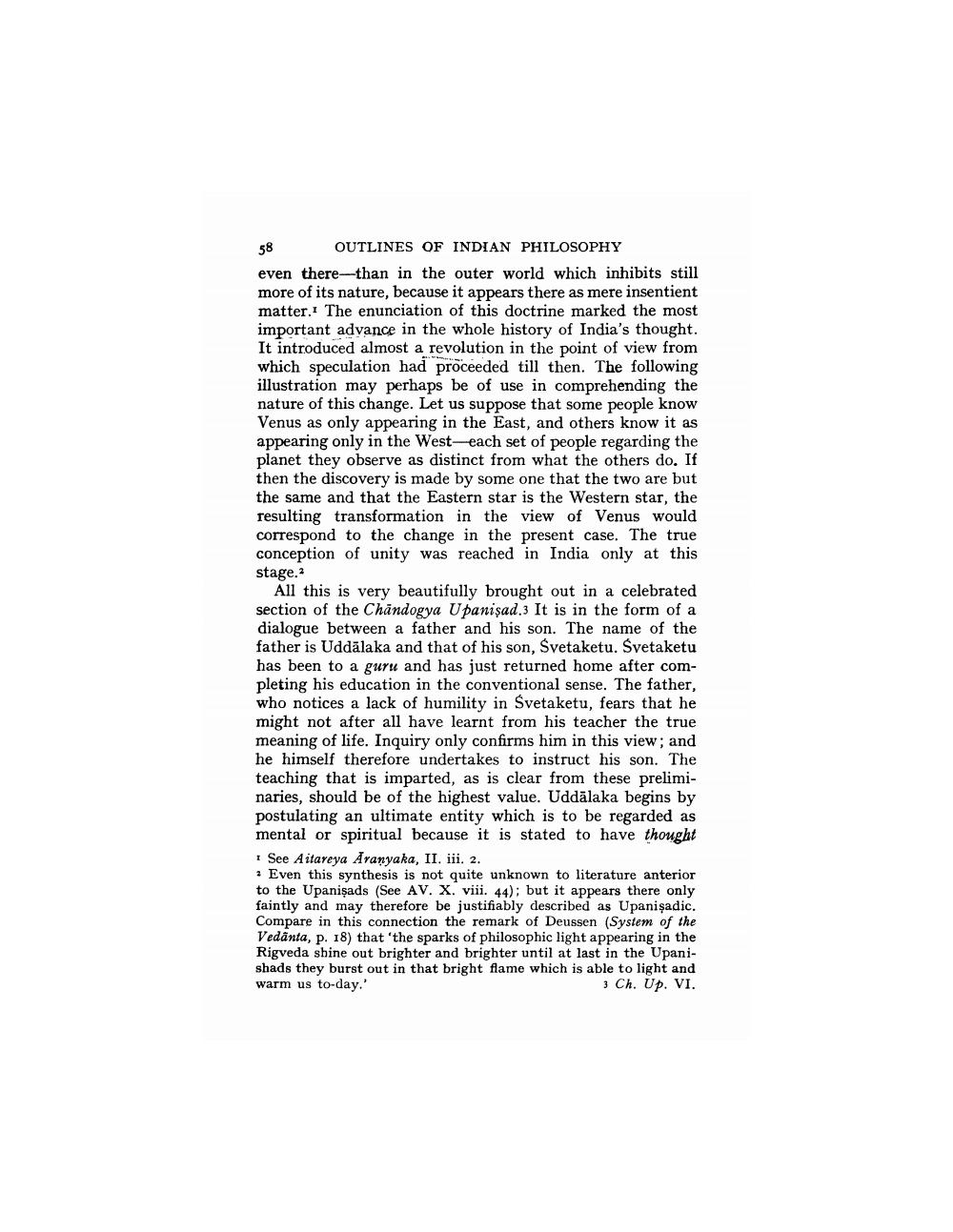________________
58
OUTLINES OF INDIAN PHILOSOPHY
even there-than in the outer world which inhibits still more of its nature, because it appears there as mere insentient matter. The enunciation of this doctrine marked the most important advance in the whole history of India's thought. It introduced almost a revolution in the point of view from which speculation had proceeded till then. The following illustration may perhaps be of use in comprehending the nature of this change. Let us suppose that some people know Venus as only appearing in the East, and others know it as appearing only in the West-each set of people regarding the planet they observe as distinct from what the others do. If then the discovery is made by some one that the two are but the same and that the Eastern star is the Western star, the resulting transformation in the view of Venus would correspond to the change in the present case. The true conception of unity was reached in India only at this stage.2
All this is very beautifully brought out in a celebrated section of the Chandogya Upanisad.3 It is in the form of a dialogue between a father and his son. The name of the father is Uddālaka and that of his son, Svetaketu. Svetaketu has been to a guru and has just returned home after completing his education in the conventional sense. The father, who notices a lack of humility in Svetaketu, fears that he might not after all have learnt from his teacher the true meaning of life. Inquiry only confirms him in this view; and he himself therefore undertakes to instruct his son. The teaching that is imparted, as is clear from these preliminaries, should be of the highest value. Uddālaka begins by postulating an ultimate entity which is to be regarded as mental or spiritual because it is stated to have thought
See Aitareya Aranyaka, II. iii. 2.
Even this synthesis is not quite unknown to literature anterior to the Upanisads (See AV. X. viii. 44); but it appears there only faintly and may therefore be justifiably described as Upanisadic. Compare in this connection the remark of Deussen (System of the Vedanta, p. 18) that 'the sparks of philosophic light appearing in the Rigveda shine out brighter and brighter until at last in the Upanishads they burst out in that bright flame which is able to light and warm us to-day.' 3 Ch. Up. VI.




